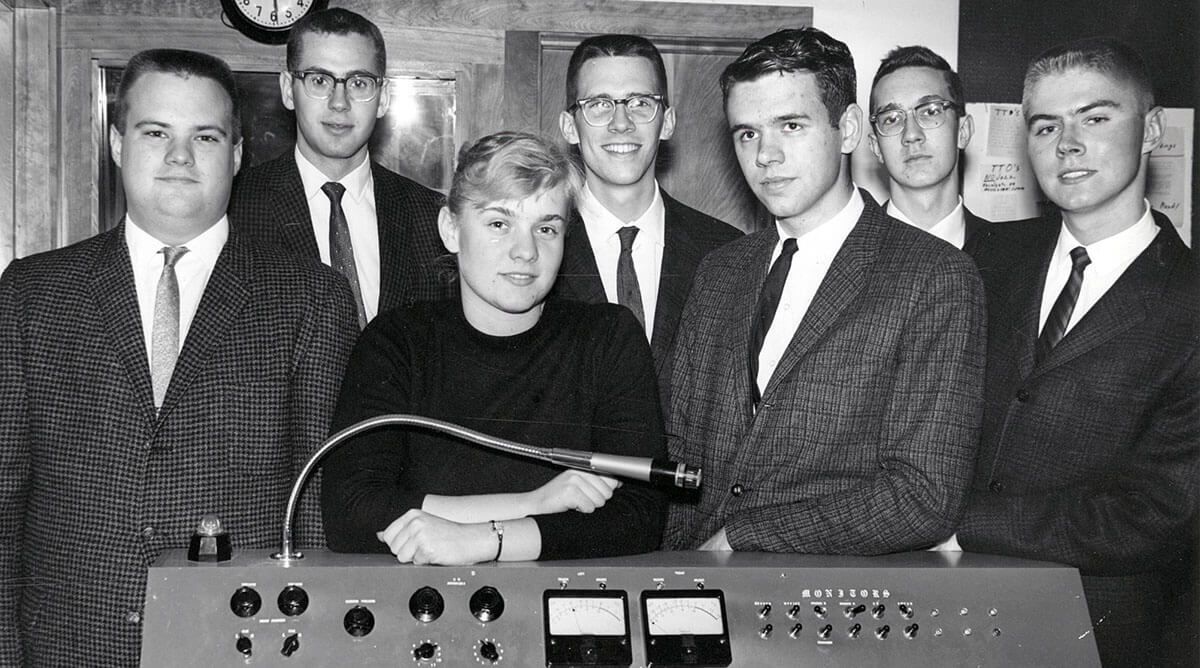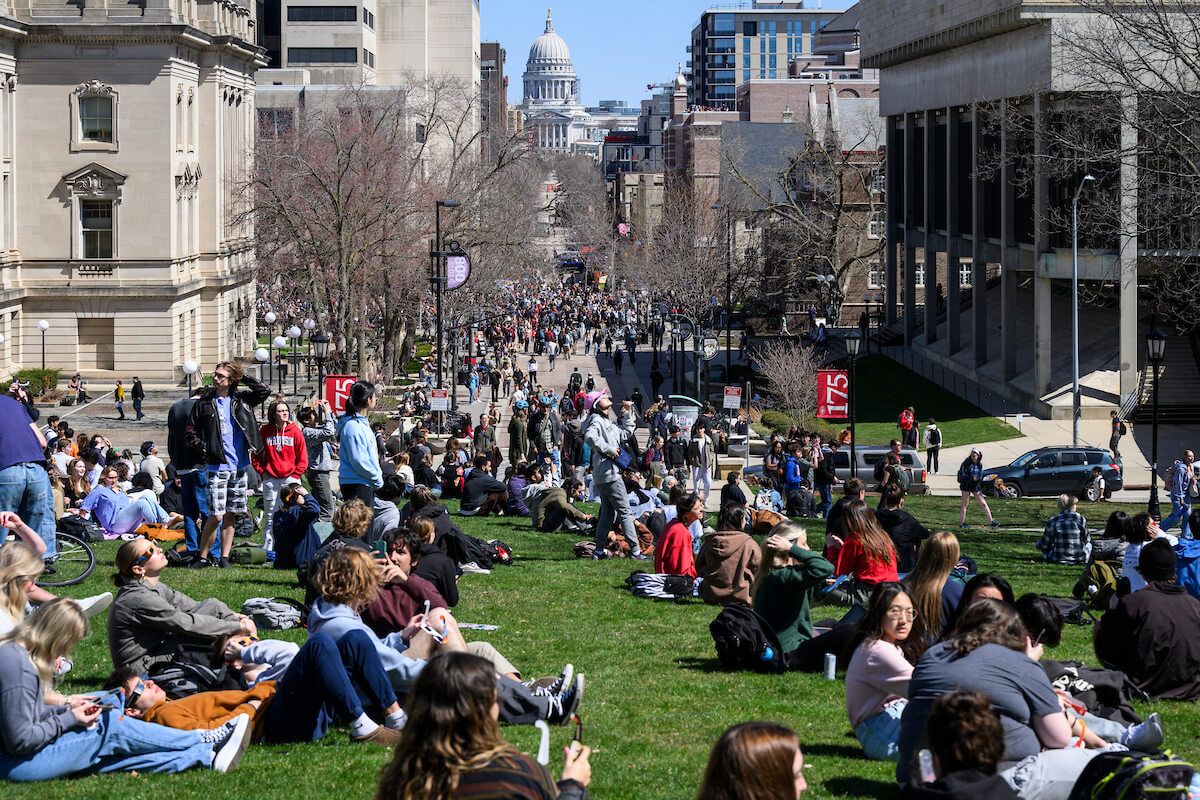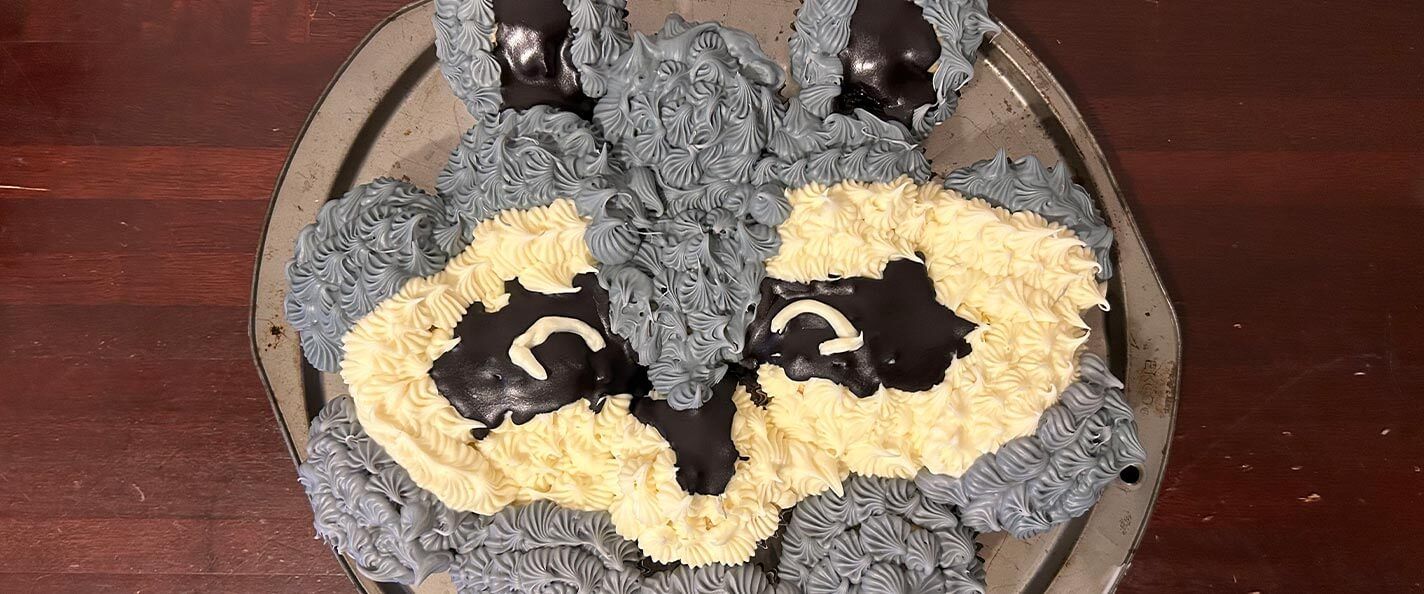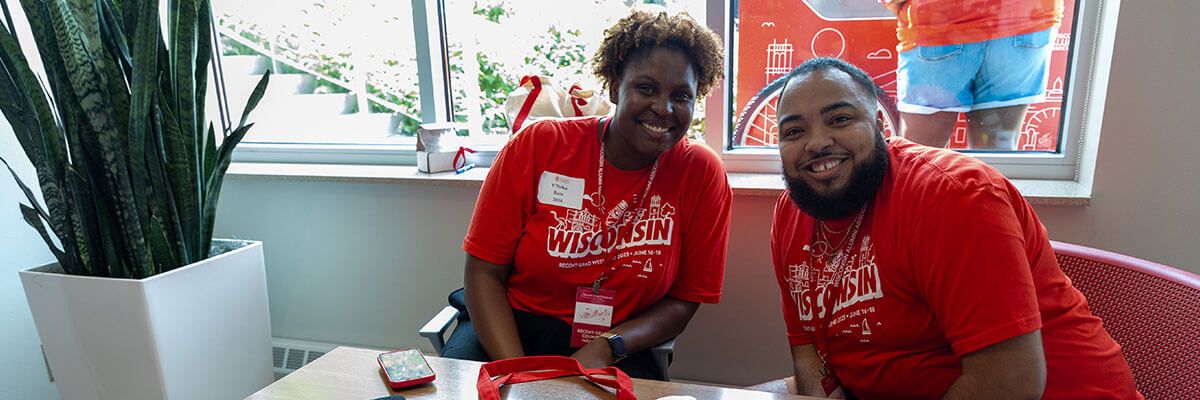As the novel coronavirus spread throughout the world in early March, UW–Madison epidemiologist Malia Jones knew two things for certain: we had a pandemic on our hands, and we were going into lockdown. What she did not anticipate was the role she would play in easing the nerves of a nation rife with fear.
Along with an all-female, interdisciplinary team of scientists from around the country, Jones fields questions regarding all things COVID-19 on “Dear Pandemic,” a platform developed by Jones and her collaborators to supplement gaps in public knowledge about this unprecedented situation and to equip their audience with the know-how to weather it.

“When I imagined what [my role in the pandemic] was going to look like, I was like, ‘Oh, this’ll be so great. I’ll have so much time to knit and write papers,’” Jones says. “[I] completely missed. I was completely blindsided by wading into this.”
Early Signs and Symptoms
Apart from the obvious worldwide crisis at hand, Jones wasn’t aware of the true extent of our country’s impending struggle until landing at O’Hare airport in Chicago after a trip to Iceland in February.
“It was like a horror movie of infectious disease control,” Jones says. “It was just like no one had a clue what to do.”
In a grim glimpse at the country’s haphazard pandemic preparedness, Jones recalls only a small folding table staffed by three Centers for Disease Control (CDC) representatives who were screening passengers for fevers while sporting some unconventional protective equipment.
“One of them was wearing a surgical mask, one of them was wearing a face shield, and then the third one was inexplicably wearing a pair of costume, steampunk, flight goggles,” Jones says. “I fully expected the United States [to have] outstanding pandemic response planning. I thought we had supplies stockpiled. I thought that all those plans would be triggered. Instead, it was a folding table and some costume flight goggles.”
Jones had concerns, and she had questions. So did the rest of the country.
Diagnosis
An epidemiologist whose research focuses on relationships between spatial patterns and health disparities, Jones did not consider herself an expert in pandemics or the myriad problems that arise with them when this one set in. That didn’t stop her inbox from filling up with anxious emails inquiring about everything from the efficacy of mask-wearing to how much of a struggle we were really in for.
Jones hit “reply all” and drafted an email to close friends and family detailing what her expertise suggested might happen next and offering context and information surrounding infectious diseases, outbreaks, and their containment.
What Jones did not predict was how long her recipient list would get. She posted the email to Facebook, where it was shared nearly 100,000 times before catching the attention of a USA Today editor. The email was then published as an op-ed that has since garnered over one million views.
“I think what happened was there was just no real information at that point,” Jones says. “Every reporter was trying to become a science reporter overnight, and no one even knew who to call to ask questions about a pandemic like this. That email I wrote just got sucked into a vortex of lack of information [and] lack of content.”
As that vortex pulled Jones — an overnight pandemic expert — onto the world stage, she reached out to long-time collaborator Alison Buttenheim, a public health researcher and epidemiologist at the University of Pennsylvania who was equally inundated with panicky questions. The two created a Facebook page titled “Dear Pandemic” as a means of centralizing the slew of questions that came their way.
“We were getting a lot of questions that were kind of Dear Abby-like questions,” says Jones. “They’re very personal and specific. A lot of them are super practical like, ‘Okay, that’s great. I’m so glad we’ve sequenced the genome, but do I have to wipe off my groceries?’”
According to Jones, the questions that fill the Dear Pandemic inbox range from everyday living and best practices to technical inquiries about the science behind the virus.
“In some cases, it’s almost like something that could have been in Good Housekeeping magazine in the 1950s. Then, too, we talk about how false positives occur, and we share transcription processes and try to translate and explain all the science,” Jones says.
Their most recurrent question: masks.
“We could have a whole page that’s just questions about masks, and post twice a day until the end of time, and people would still have more questions. It’s just astonishing,” Jones says. “We’re still answering some of the same questions that we were answering back when masks were first emerging as a recommendation.”
As Dear Pandemic has expanded across several social media platforms to meet the demands of a growing audience, so, too, has its team, which now includes experts in end-of-life planning and geriatrics, behavioral science, policy, economics, immunology, mental health, family medicine, and epidemiology across various fields of expertise — the self-described “nerdy girls” committed to countering uncertainty and hearsay with facts.
“I think that a lot of the collaborators are hoping that it becomes a really durable enterprise that has a scientific arm and a public-health intervention arm,” Jones says. “We really go out of our way to be nonpartisan, and I think that’s an important step for public health to take: to try to bridge what has become, totally unnecessarily, an ideological debate and bring it back to a scientific conversation.”
According to Jones, the key to combatting a pandemic is to teach people to think like an epidemiologist: to consider how they fit into their larger communities and how their actions affect the people around them in widespread ways. Dear Pandemic is just one means of influencing these behaviors for the better.
“A pandemic is a population problem,” Jones says. “It’s not an individual problem at all, and yet we have to get individual people to make decisions like wearing a mask and getting a vaccine, hopefully eventually, in order to control it.”
The Possibility of a Post-Pandemic
Regarding that initial email back in March, Jones has some edits.
“When I wrote that letter, CDC was recommending that people not wear masks. There weren’t many [medical-grade] masks available, and, of course, most of us didn’t own a collection of cute print fabric masks, either,” Jones says. “The landscape on masks has changed entirely. I wish I could rewrite that letter and tell people they should have been wearing masks from the get-go, but it was the best information we had at the time.”
She also wishes that she had dedicated less space to the role of surface transmission of the virus and placed more emphasis on the greater risks of face-to-face interaction between people — though she still stands firmly behind keeping hands clean and away from our faces.
“If I were to add something, it would be [that] we’re increasingly learning that super-spreaders [and] super-spreading is probably the foundation, the cornerstone of how the pandemic is continuing,” Jones says.
As for her early disclaimer that she does not study pandemics, she now says the opposite is true.
“I kept saying that for, like, three months, and then I was like, ‘Oh, wait. I guess now I really do study pandemics.’ It’s what I do,” she says. “My career has been irrevocably shifted in a new direction by this, and it was not something I expected coming at all.”
Dear Pandemic has far outlived what its creators had initially intended as the pandemic continues to exceed everyone’s expectations. However, Jones foresees the project existing well after the worst is behind us — whenever that day comes — as she and “those nerdy girls” continue to offer clarity for the new questions that arise with the development of vaccine technology and life after COVID.
“I feel really lucky that I have had ‘Dear Pandemic’ because it’s given me something to work on that feels really helpful and like I’m making a contribution to the world,” Jones says. “It’s what I got into public health for.”







